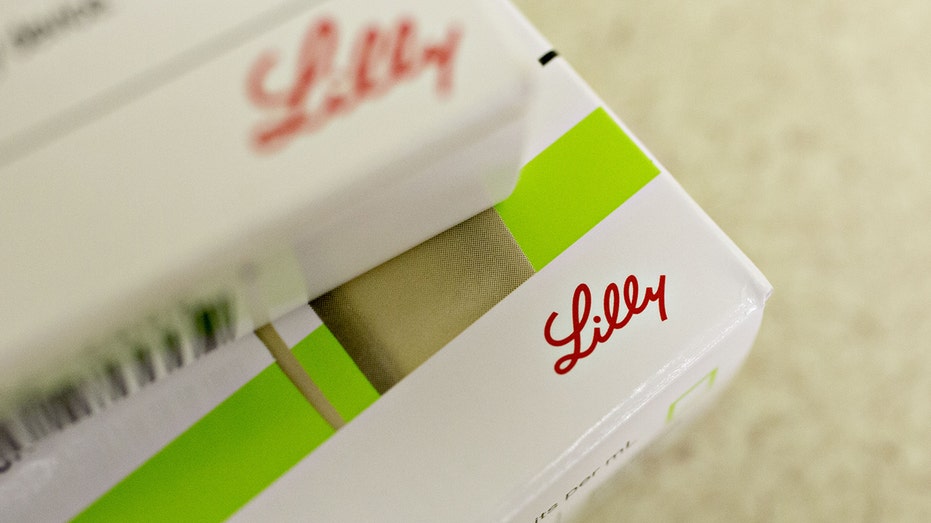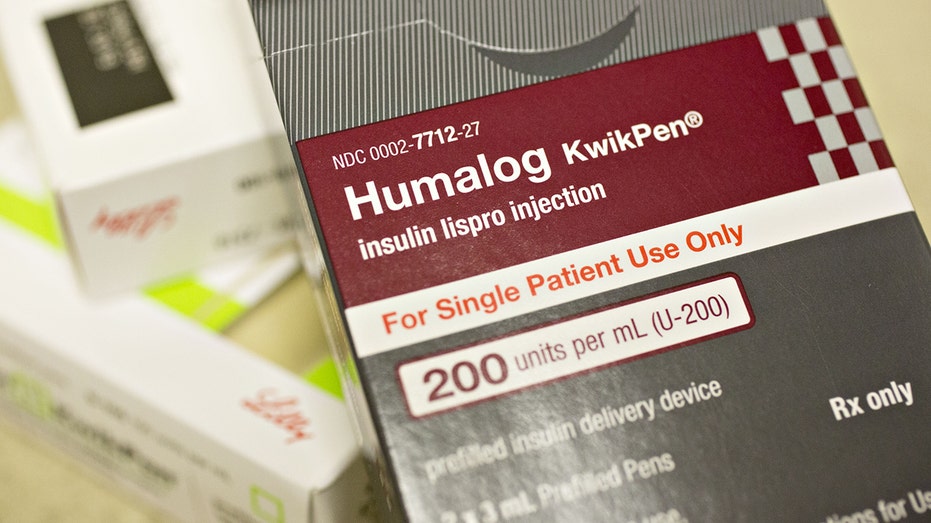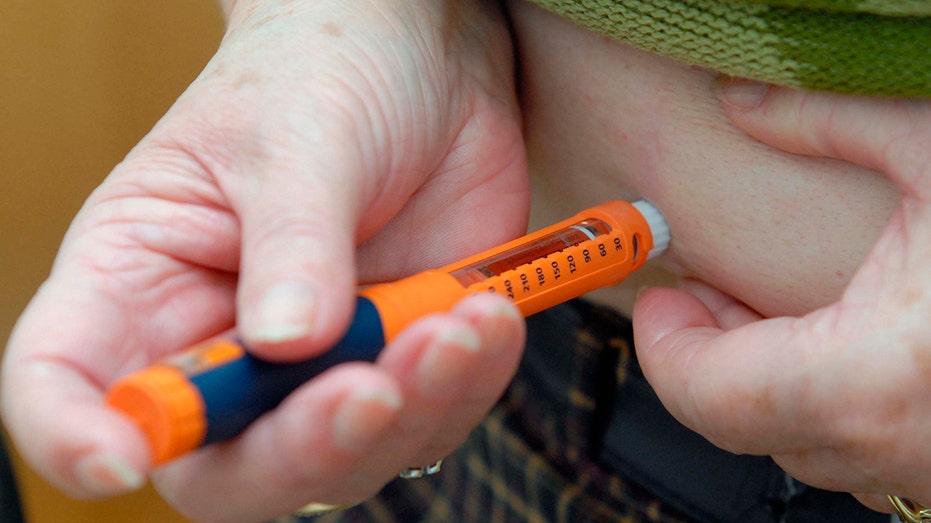Eli Lilly caps out-of-pocket costs for insulin effective immediately
The maker of Humulin and KwikPen says its cutting the price of its most commonly prescribed insulin, Humalog by 70%
Arkansas AG on border conditions, suing big pharma over insulin prices
Arkansas Attorney General Leslie Rutledge provides insight into the conditions at the southern border as Title 42 is set to end and suing major pharma companies over raising the price of insulin.
Pharmaceutical giant Eli Lilly is capping out-of-pocket costs for its insulin at $35 for patients, effective immediately.
It's also pledging to cut the price of its most commonly prescribed insulin by 70%.
According to the American Diabetes Association, more than 37 million Americans are living with diabetes and 8.4 million Americans rely on insulin to survive. The issue is that insulin costs are typically 10 times more in the U.S. than anywhere else in the world, the association said.

An Eli Lilly & Company logo is seen on a box of insulin medication in this arranged photograph at a pharmacy in Princeton, Illinois, U.S., on Monday, Oct. 23, 2017. (Daniel Acker/Bloomberg via Getty Images / Getty Images)
"While the current healthcare system provides access to insulin for most people with diabetes, it still does not provide affordable insulin for everyone and that needs to change," Eli Lilly CEO David Ricks said in a statement.
HOUSE PASSES BILL CAPPING INSULIN AT $35 A MONTH FOR PATIENTS WITH INSURANCE
The move, announced Wednesday, comes just after a provision in the Inflation Reduction Act was imposed in January that caps the out-of-pocket costs for patients enrolled in Medicare at $35 per monthly prescription. There is a higher prevalence of diabetes, nearly 30%, in Medicare patients, according to the U.S. Department of Health and Human Services (HHS).

A box of Eli Lilly & Company Humalog brand kwikpen insulin delivery devices is arranged for a photograph at a pharmacy in Princeton, Ill., Oct. 23, 2017. (Daniel Acker/Bloomberg via Getty Images / Getty Images)
Price cuts will take time for the insurance and pharmacy system to implement, according to the company. Still, it's ensuring there will be a cap out-of-pocket costs for patients who use Lilly insulin and are not covered by the recent Medicare Part D cap, effective immediately.
Lilly will automatically cap out-of-pocket costs at $35 at participating retail pharmacies for patients that have with commercial insurance using Lilly insulin. Those who don't are instructed to go to InsulinAffordability.com and immediately download the Lilly Insulin Value Program savings card to receive insulin for $35 per month.
WHO WILL PAY FOR THE BALANCE OF CAPPING INSULIN PRICES? EVERYONE ELSE.

Patient Hilda Kaelber injects herself with an insulin pen in Munich, Germany, Feb. 2, 2007. (Guido Krzikowski/Bloomberg via Getty Images / Getty Images)
Effective May 1, the price of non-branded insulin, Insulin Lispro Injection 100 units/mL, will also drop to $25 a vial, which is the "lowest list-priced mealtime insulin available," the company said.
The drugmaker is also cutting the price of its most commonly prescribed insulin, Humalog, as well as Humulim by 70% in the fourth quarter of 2023.
According to HHS, list prices for insulin has increased over time and nearly doubled between 2012 and 2016 before stabilizing in recent years.
However, in a January 2021 report, global policy think tank RAND Corporation estimated that the average list price for a vial of insulin in America was $98.70.
These high prices can make it harder for patients to follow prescribed insulin regimens, "which can, in turn, lead to complications including ketoacidosis, kidney disease, vision loss, and others," according to HHS.
GET FOX BUSINESS ON THE GO BY CLICKING HERE
Eli Lilly and Co
| Ticker | Security | Last | Change | Change % |
|---|---|---|---|---|
| LLY | ELI LILLY & CO. | 1,058.18 | +37.34 | +3.66% |
Not only that but "these complications are expensive to treat, severely impact patients’ quality of life, and may lead to hospitalizations, amputations, and death," federal officials continued.
Ricks doesn't want Lilly to be alone in this shift. He's calling on "policymakers, employers and others to join us in making insulin more affordable."
"Our work to discover new and better treatments is far from over," he continued. "We won't stop until all people with diabetes are in control of their disease and can get the insulin they need."





















